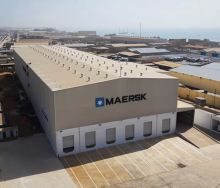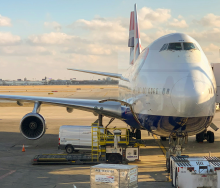Thousands of German port workers are set to down tools and start a 48-hour strike on Thursday, in the third bout of industrial action to hit the country in a few weeks, as wage negotiations with employers hit another deadlock.
The industrial action by 12 000 dockers will bring operations at key container hubs of Hamburg, Bremerhaven and Wilhelmshaven to a standstill, marking the third and longest period of industrial action in the acrimonious wage dispute.
The Loadstar reported that if the strike went ahead as planned, it would have a serious impact on liner networks and worsen the already chronic supply chain congestion at North European container hubs. According to the publication, the port workers are expected to down tools at German ports from 06:00 on Thursday until 06:00 Saturday, the nation’s longest dock strike in more than 40 years.
The heightened industrial action comes after the sixth round of negotiations between the employers, the Central Association of German Seaport Companies (ZDS), and the trade union ver.di, hit the latest deadlock.
“The employers are not sufficiently meeting our demand for a real inflation compensation,” said ver.di’s chief negotiator Maya Schwiegershausen-Güth.
“We need a real inflation compensation so that the employees in all companies are not left alone with the consequences of galloping price increases,” said Schwiegershausen-Güth, who called an earlier offer by ZDS “a classic sham”.
However, commenting on the latest deadlock, ZDS negotiator Ulrike Riedel said that the union had shown “no willingness to compromise” although employers had given them “repeatedly improved offers”. She said the employer had “responded” to the workers’ demands.
She added that a wage hike offer of “up to 12.5%” was now “on the table”, including a permanent increase of 8% backdated to June 1.
“With this offer, we are above the very high inflation rate and far above what ver.di and other unions are demanding and concluding in other current negotiations. We cannot afford more than that without endangering the survival of companies,” Riedel said.
“Any further escalation of industrial action would be completely disproportionate in view of this offer and harms not only us, but Germany as a whole. We urgently need a conciliation procedure,” she added.
However, the union has warned that further strikes cannot be ruled out. Schwiegershausen-Güth rejected the need for arbitration and called on employers to renegotiate the permanent increase, which she claimed could reduce to 3.5% for some sectors of the workforce.













